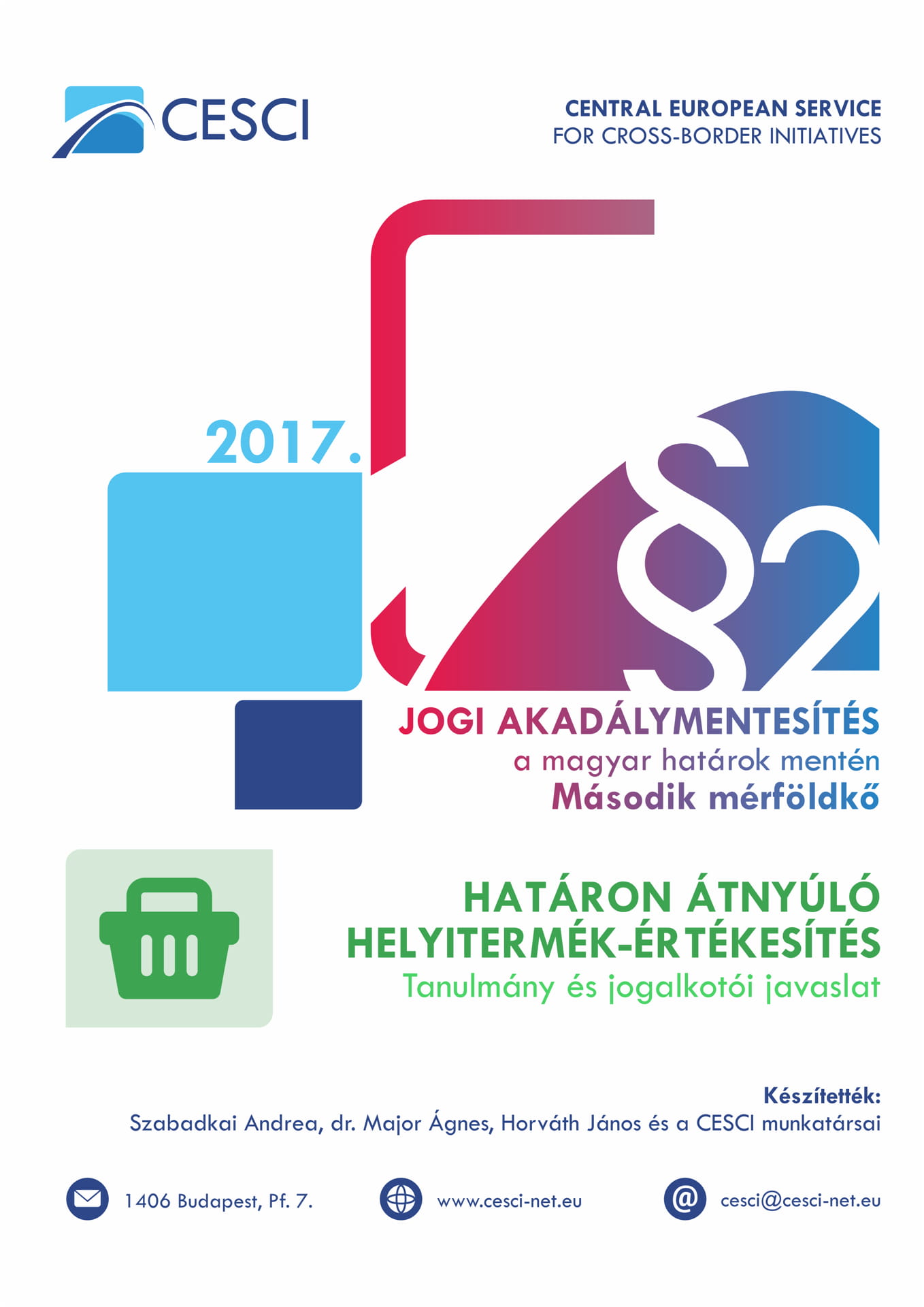
- Written by: Andrea Szabadkai, dr. Ágnes Major, János Horváth and CESCI
- Territory: Carpatian space
- Year of publication: 2017
- Type: Study
- Language: Hungarian
- Number of pages: 63
Cross-border trade of local products (Legal Accessibility: Second milestone) (HU)
During the 2016 project, Legal Accessibility, the issue of cross-border trade of local products was identified as a priority topic, since this question, which has a complex legal background, appeared at numerous stakeholder-workshops. Subsequently, during the 2017 project design, the topic of local products and cross-border supply chains received special emphasis.
The aim of the subproject related to local products was for CESCI to reveal the legal background of the specific issue in details and to formulate suggestions in order to remove the existing obstacles. Revealing of the legal background and formulation of suggestions took place with the help of external experts and with the help of a working group on the other hand. A summarising study was made about the results.
The aim of the project was to alleviate the disadvantageous situation of people in border areas, caused by the territorial scope of the Hungarian legislation on local markets, through extension of the 40 km zone, which appears in the Hungarian market regulation, into the areas beyond the border; to contribute that people who live along the border are supplied by healthy food and to improve their quality of life; to weaken the separating effect of the borders through creation of a unifying economic space; to widen the market opportunities for the small-scale producers through mutual opening of sale opportunities of the neighbouring states towards each other.
The expert study can be divided into three main parts. In the first part, the authors summarise the theoretical frameworks of cross-border local product sales. The second part demonstrates the activities carried out in the framework of the sub-project: the results of CESCI’s project from 2016, the questionnaire and the work of the working group. Finally, the third part included the comprehensive legal analysis, which deducts the necessity of the harmonisation from the EU pillar of the free movement of goods and services.
The authors of the study do not recommend modifying the legislations. Finally, the study gave policy and practical advice and recommendations, not legal, and examined the problem with professional thoroughness.

